Photo: Brian Stukes/Getty Images for The Recording Academy
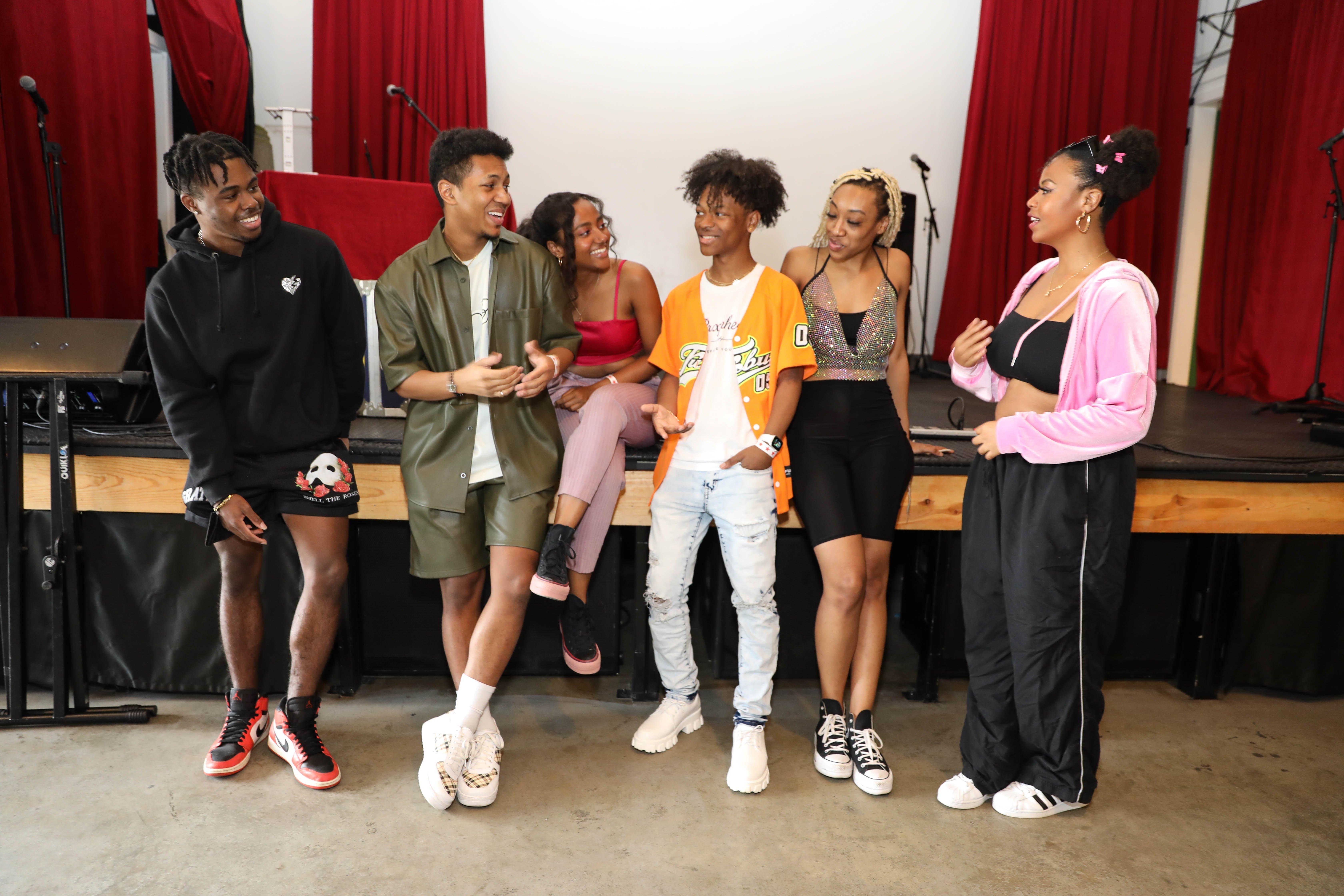
news
Your Future Is Now: Music Industry Executives Discuss The Benefits Of Historically Black Colleges And Universities
From Interscope Records' Tim Glover to Warner Records' Julian Petty, GRAMMY.com gathered a group of music industry executives to discuss their HBCU experience
Updated Friday, April 14, 2023, to include information about the 2023 "Your Future Is Now" scholarship program and to update job titles.
Black creatives, from songwriters to engineers, form the music industry's backbone. To ensure their passions and successes are given a platform, the Recording Academy's Black Music Collective (BMC), a group of prominent Black music creators and professionals, are striving to amplify Black voices.
The BMC aims to create a safe space for the next generation of Black creatives and professionals — both within the Recording Academy and the music industry at large. That’s why they collaborated with Amazon Music to launch the "Your Future Is Now" scholarship program. First announced last year during Black History Month, "Your Future Is Now" is a multi-year mentorship and scholarship program that aims to provide select students at Historically Black Colleges and Universities (HBCUs) the opportunity to learn and explore all facets of the music industry. The program, which returns this month for the for the third consecutive year, offers select students currently enrolled at a HBCU networking opportunities with music industry leaders as well as an immersive rotation program with Amazon Music and Recording Academy department leads, an experience that will provide each student a detailed look at different fields across the music industry.
This year, the BMC and Amazon Music will select five HBCU students to take part in the "Your Future Is Now" scholarship program; each student will be awarded a $10,000 scholarship. In addition, the BMC and Amazon Music will award two HBCUs $10,000 grants each for equipment for their music programs.
In honor of the return of the "Your Future Is Now" program, GRAMMY.com spoke with key players in the music industry about their personal experiences attending various HBCUs, and the growth they'd like to see within the community.
Applications for the "Your Future Is Now" scholarship program are open now. The deadline to apply for the scholarship is Friday, April 28. Selected scholarship recipients will be announced on Monday, May 8.
**Mike Hamilton Jr. (SVP, Streaming & Commerce,Def Jam Recordings)**
**Studied Communications at Howard University, Graduation Year: 2012**
What do HBCUs offer in terms of unique education and experience?
The most invaluable quality that's found at HBCUs is the family atmosphere. You're not your student ID number. Professors, staff, faculty, etc. take real investment in students. They know you — and sometimes even your family members — by name. That's almost unheard of at the higher education level.
You also are immersed in the full range and diversity of Black people from different regions of the U.S. and the world at large. Along with those, the network and lifelong relationships you build with friends and classmates, as well as the common bond you have with graduates of other HBCUs, are things that I wouldn't trade for the world.
What are some key reasons why students should consider attending HBCUs?
You don't just receive an education at an HBCU; it's the full experience that separates it from other institutions. Rap cyphers on the Yard, homecomings, the gospel choir, the bands, fine arts, Greek life, the campus being the equivalent of a daily fashion show are just some of the elements that make HBCU culture extremely unique.
Additionally, in a world that constantly reminds Black people that we are "other[ed]," there's a safety in knowing that for four or five years you're not constantly being reminded of your Blackness in ways that are racist and oppressive. You are who you are and the HBCU environment instills confidence in you that allows you to navigate every space you occupy even after that "safety net" is gone.
What are some experiences or knowledge you attained at your HBCU that impacted your career?
The power of networking and really hustling to make things happen. Howard hit us over the head with that from day one, and it's the most impactful tool I took away from my experience there. My first full-time job in the business was as an assistant at Atlantic Records. I got the job through a reference from an executive there (shout-out to Sydney Margetson, also an HU alum) who I met at a panel at my Howard freshman dorm. We stayed in contact and when the assistant job became available in the brand partnerships department, he referred me to Camille Hackney who hired me on the spot after my second interview. I also worked closely with Joi Brown (another HU alum) while in the department.
There are so many Howard and other HBCU alumni in the music business. That common grind spirit is something that we all relate to. I think that's why so many of us have been successful in this industry. You have to have a certain level of determination in order to make a name for yourself in music, no matter what side of the business you're on. Whether you have the resources to do it or not, you learn how to be resourceful. HBCUs prepare you for that.
What growth or developments would you like to see happen at HBCUs to take things to the next level?
I'd love to see more partnerships between HBCUs and various music companies that help facilitate a real education and deep learning process so that students fully understand the range of opportunities that exist in our industry. It's no secret that the music business (like many other fields) has a diversity problem. And there are so many talented kids on these campuses who could become the next wave of incredible executives, talent managers and more if they were more exposed to opportunities and granted the chance to learn about them from [alumni].
And I don't mean just partnering with certain HBCUs. It's so common for everyone to only do things at Howard, Spelman and Morehouse. I'm from North Carolina where there's not much of a music scene; it's grown a lot since I graduated high school and we're seeing more artists come out of NC now. But had I not gone to Howard and been able to tap into that network, I'm not sure I'd be where I am now. Students who opt to attend HBCUs that aren't in major cities like D.C. or Atlanta should still have access to the networking opportunities that I did. I'd like to see that happen on a much wider scale. And I'm happy to be part of it myself.
**Timothy Glover (SVP A&R, Interscope Records)**
**Studied Marketing at Howard University; Graduation Year: 2006**
*Photo courtesy of Timothy Glover*
What do HBCUs offer in terms of unique education and experience?
Howard University School of Business is an accredited business school with a great business program. Howard allowed me to evaluate real businesses and taught me how to carry myself. They kept us professional and gave us information that prepared us for the real world.
What are some key reasons why students should consider attending HBCUs?
Attending Howard, I was around people that looked like me. I think it helped make me become a more social person [in that I] gained long-lasting relationships with students in different industries. That same network transferred over to my professional career. Many people who I went to school with are in the same industry and we immediately have that connection, even if we weren't at Howard during the same years.
What are some experiences or knowledge you attained from your HBCU experience that impacted your career?
I learned how to put together business plans, interacted with African-American faculty and learned the skills needed to feel comfortable in any room.
What growth or developments would you like to see happen at HBCUs to take things to the next level?
I would love to see more music courses in all HBCUs. When I was at Howard I was constantly looking for ways to learn the music business. In addition to the music courses, it would be great if these programs were connected with labels to really give these students an opportunity to work across UMG, Warner, Sony, etc.
**Keinon Johnson (Senior Vice President, Interscope Records)**
**Studied Mass Media Arts at Clark Atlanta University; Graduation Year: 1997**
*Photo by Harold Daniels*
What do HBCUs offer in terms of education and experience that is unique?
My experience at Clark Atlanta University provided a space for young Black students like myself to feel secure in the familiarity of our shared experiences while pursuing our education.
What are some key reasons why students should consider attending HBCUs?
The sense of community and finding your tribe is without question a uniquely HBCU experience. Many of the relationships I built during my time at CAU are even stronger today in regards to both business and friendship.
What are some experiences or knowledge you attained at your HBCU that impacted your career?
The relationships you cultivate in college, while you and your peers are all broke and figuring who you are and will become, are the same relationships that will enrich your life after college is over. There's something about struggling together, learning together, becoming together at an HBCU that bonds you for life.
What growth or developments would you like to see happen at HBCUs to take things to the next level?
I would love to see more investment in all HBCUs across the country to modernize them and provide them with the top resources available, which will keep them competitive with other institutions of higher learning. I think all things being equal, the experiences you gain while attending an HBCU are priceless. It would be amazing if the lesser-known schools outside of Atlanta, D.C. and VA received more sustained funding from private and public donors.
**Shakari "TRAKGIRL" Linder (Music Producer/Entrepreneur/Founder, TRAKGIRL/The 7/NO ADTNL)**
**Studied Business at Hampton University; Graduation Year: 2010s (note: undisclosed years)**
*Photo by Barron Bazemore*
What do HBCUs offer in terms of education and experience that is unique?
Hampton provided life lessons that I was able to utilize in my daily life, such as holding yourself to a high standard. Both in life and as a creative, we should hold ourselves in that nature. Hampton gave me an opportunity to find and know myself. That's something a book can't teach you.
What are some key reasons why students should consider attending HBCUs?
The alumni network is golden at an HBCU. When you go out in the world it's nothing like meeting someone who has a similar foundation as you. It's also amazing to see people who look like you with so many different ideas and perspectives. It's like being on a special island.
What are some experiences or knowledge you attained from your HBCU that impacted your career?
My career is bigger than just music. Building a legacy and leaving the blueprint for others after you to thrive is something Hampton helped grow inside me. Giving back to my people and community is far greater than just being in the studio. Let's create our own legacy. Ownership is key for us. Again, [these are] principles that HBCU culture enhances.
What growth or developments would you like to see happen at HBCUs to take things to the next level?
I want everything at a high level for my HBCUs. Every resource that PWIs [Predominantly White Institutions] have, HBCUs should have — we deserve that standard. Also, updated campus facilities that include state-of-the-art studios and programs/courses focused on financial literacy for music creatives.
**Rachel "Rachie" Jackson (Artist Relations Manager, YouTube Music)**
**Studied Business Marketing & Psychology at Clark Atlanta University; Graduation Year: 2013**
*Photo courtesy of Rachel Jackson*
What do HBCUs offer in terms of education and experience that is unique?
HBCUs present a unique opportunity for Black students to discover that we are in no way culturally homogenized. Out of the 107 HBCUs, there are clusters of them that are top 10, 5 or even No. 1 in specialized fields such as Business, Health, Agriculture, STEM, Criminal Justice, and more. Additionally, there is nothing like an HBCU homecoming!
What are some key reasons why students should consider attending HBCUs?
The scholarly pride, support, life-long bonds and networking opportunities that come from HBCUs are a few underrated additives that come along with attending. There have been so many times where I was chosen for an opportunity or included in a program that helped my career grow because of having CAU on my resume. It set me so far apart from my competition.
The HBCU alumni base looks out for and encourages growth in all aspects when they come across students that attended. I view it as a baton that I believe I was passed to carry out the same historical support. I always say that CAU shaped me for the better. Our dual mottos "I'll Find a Way or Make One" and "Culture for Service" are strong ideals that were instilled in me during my undergraduate experience, and I still apply them to my matriculation through life.
What are some experiences or knowledge you attained at your HBCU that impacted your career?
The CAU School of Business Administration primed me like no other. I thank all of the professors that taught me within my degree programs, my business communication (both written and verbal), presentation/public speaking skills, marketing acumen, understanding of supply chain, the list goes on and on. I also was able to hone my event planning, promotions, and live concert logistics skills by way of being so closely involved with our Homecoming festivities.
What growth or developments would you like to see happen at HBCUs to take things to the next level?
I'd love to see more corporate entities pouring more money into HBCUs while simultaneously incepting incubators that land opportunities for growth within both creative and corporate industries. I'd also like to see a greater emphasis placed on scholastic programming around financial literacy and wealth management.
**Albert Cooke (General Manager, Hillman Grad Records/Def Jam Recordings)**
**Studied International Relations at Lincoln University; Graduation Year: 2007**
*Photo courtesy of Albert Cooke*
What do HBCUs offer in terms of education and experience that is unique?
HBCUs are educational centers of empowerment for those who attend. You learn about the great history of Black leadership throughout the diaspora while also being encouraged to add to that legacy. Your experience will be enriched through interacting with other Black students from different parts of the world at various school activities, campus-wide events and organizations.
What are some key reasons why students should consider attending HBCUs?
One key reason is the overall support from faculty and staff. Their efforts aid in building knowledge within the community and providing accountability on campus. Many of the opportunities I was presented at Lincoln were introduced to me by professors and faculty who believed I had the potential to make a difference.
Another key reason is the financial cost. Most HBCUs have tuition that is lower than most PWIs while providing quality education to those ready to make an impact on their lives. Lastly, the bonds you build with other students and alumni while attending an HBCU are like no other. The experiences of homecomings, graduations, step shows, probates, and sporting events create a family-like atmosphere that continues well after you graduate.
What are some experiences or knowledge you attained from your HBCU that impacted your career?
Serving in various leadership positions while at Lincoln provided me the early opportunity to define the type of leader I wanted to be and how I wanted to support members of the Lincoln community. The knowledge I gained from majoring in international relations provided insight on the importance of cultural understanding, diplomacy, compromise, strategy, and maintaining strong relationships in business.
What growth or developments would you like to see happen at HBCUs to take things to the next level?
HBCUs should continue to expand study abroad opportunities in various disciplines for students. I would also like to see more music industry-focused degree programs since many of today's leading artists either are Black or influenced by Black artistry and culture.
**Julian K. Petty (EVP, Head of Business & Legal Affairs, Warner Records)**
**Studied Marketing at Howard University; Graduation Year: 1999**
*Photo courtesy of Julian K. Petty*
What do HBCUs offer in terms of education and experience that is unique?
I believe the quality of the education is just like at any other competitive school. However, for many of the students, it's the first time that they are being taught by professors who look like them. These are highly accomplished educators who could have taught anywhere (which some have on their path to an HBCU) but they chose to take their talents and expertise to a historically Black institution. Moreover, the professors bring a certain passion and perspective to the coursework that makes it an education like no other.
As far as experience, it's unique for the simple fact that it's probably the only time the average Black American will go through day-to-day life and not have to think about race as a burden.
What are some key reasons why students should consider attending HBCUs?
Great education, strong alumni network, and professors who care about your "life outcome," not just your grades.
What are some experiences or knowledge you attained from your HBCU that impacted your career?
One of the biggest reasons I am where I am today is because of a summer internship I did at Def Jam Records back in the summer of '96. I spent the summer working in the marketing department under the tutelage of Howard alum Jasmine "Jazz" Young. We've stayed in touch ever since and I couldn't imagine where I'd be now if Jazz didn't give me that shot. Since then, I've worked with countless Howard alum as well as folks from other HBCUs. My career trajectory has been greatly influenced by HBCU grads and the network we have.
What growth or developments would you like to see happen at HBCUs to take things to the next level?
In order to take things to the next level, you must have resources. I've seen some real progress in the last few years but I believe there is much to be done in the area of philanthropy. [The action of] "giving back" must become second nature in order for our HBCUs to survive and thrive. The alumni have to step up to the plate.
**Phylicia Fant (Head of Music Industry and Culture Collaborations, Amazon Music)**
**Studied English Language & Literature at Spelman College; Graduation Year: 2000**
*Photo courtesy of Phylicia Fant*
What do HBCUs offer in terms of education and experience that is unique?
The experience is unparalleled. The first part is education about self-love and acceptance. The latter is a redirection of what society might have told you to be true about people of color. We are not a monolith and what we have and continue to contribute to the world is often undervalued if not recognized at all. It is the ultimate history lesson and ownership of what our ancestors died for.
What are some key reasons why students should consider attending HBCUs?
Community is essential to growth. What happens beyond graduation is when the experience truly activates. It is the unspoken language that says "I see you and know your worth." If you call upon this tribe, it is our duty to show up for each other personally and professionally. That bond can never be broken.
What are some experiences or knowledge you attained from your HBCU that impacted your career?
I am an unapologetically Black woman. I am often misunderstood simply by the tone of my voice. I have sometimes questioned my appearance because it was not status quo. I recall the day I called my mom about getting braids in corporate America, recalling a time I was almost removed from an organization because I was told my hair resembled snakes. The call ended with, "We did not raise you to hide. You better go get those braids and embrace who you are." That led me right back to a class I took about the Black female body at Spelman. Having a career where you are often the only one means embracing all parts of you are you won't succeed. So that is my voice, my hair, my body, and all things that allow me to be me.
What growth or developments would you like to see happen at HBCUs to take things to the next level?
First and foremost, graduates have to give back financially to their alma maters. We also have to go back and let these students know that jobs exist that are both traditional and non-traditional. We grow up knowing that certain jobs allow acceptance on a larger scale but we also have to let them know what is possible. I had no idea publicity or the music business existed until my last year of college and I was in the epicenter of music and culture.
For HBCUs not in cities like Atlanta and D.C., it can be hard to access these experiences. We have to level the playing field and that can only be done by showing up and giving back.
**Leighton "Lake" Morrison (Co-owner, Generation Now)**
**Studied Political Science at Morehouse College; Graduation Year: 2000**
*Photo courtesy of Warner Music Group*
What do HBCUs offer in terms of education and experience that is unique?
Seeing progressive young Black people from all over the world. In my personal experience, I had classmates from everywhere from New York to Africa. Just to see how different regions were was almost like you were able to travel without actually traveling.
What are some key reasons why students should consider attending HBCUs?
There's a certain passion the professors have about making sure they prepare you for the real world. As I grew older I truly see the benefit of having those "hard" teachers.
What are some experiences or knowledge you attained from your HBCU that impacted your career?
Creating and maintaining relationships. That's the single most important thing I learned and took with me.
What growth or developments would you like to see happen at HBCUs to take things to the next level?
I think it's started already, but more of the top recruits coming to the athletic programs will help tons. That will help funnel funds into the colleges and universities and make them competitive in every aspect.
**Tyree "DJ Drama" Simmons (CEO, Generation Now)**
**Studied Mass Communications at Clark Atlanta University; Graduation Year: 2000**
*Photo courtesy of Warner Music Group*
What do HBCUs offer in terms of education and experience that is unique?
It offers relationships that you can cherish throughout your life and career, along with having family and friends. What was special to me beyond the classroom and the education I got in school was the education and experience I got from meeting so many people from various backgrounds and places, while all having very unique goals. The friends I met in my time at Clark Atlanta are still some of the best and most important relationships that I have to this day. I met my best friends and my business partners while attending CAU and being at the Atlanta University Center (AUC).
What are some key reasons why students should consider attending HBCUs?
Relationships and a cultivating learning environment, the culture when it comes to pride and loyalty, and the bonds you only make at HBCUs.
What are some experiences or knowledge you attained from your HBCU that impacted your career?
Being a DJ coming from Philly to Atlanta and being in an environment that had so many young people from all across the country and the world, it taught me how to be a much better and well-rounded DJ. I learned how to control the crowd. To this day, I feel like I learned my DJ chops in the AUC. It taught me how to hustle outside of the classroom and really take advantage of every moment that you're in.
What growth or developments would you like to see happen at HBCUs to take things to the next level?
More alumni involvement and acknowledging the culture more.
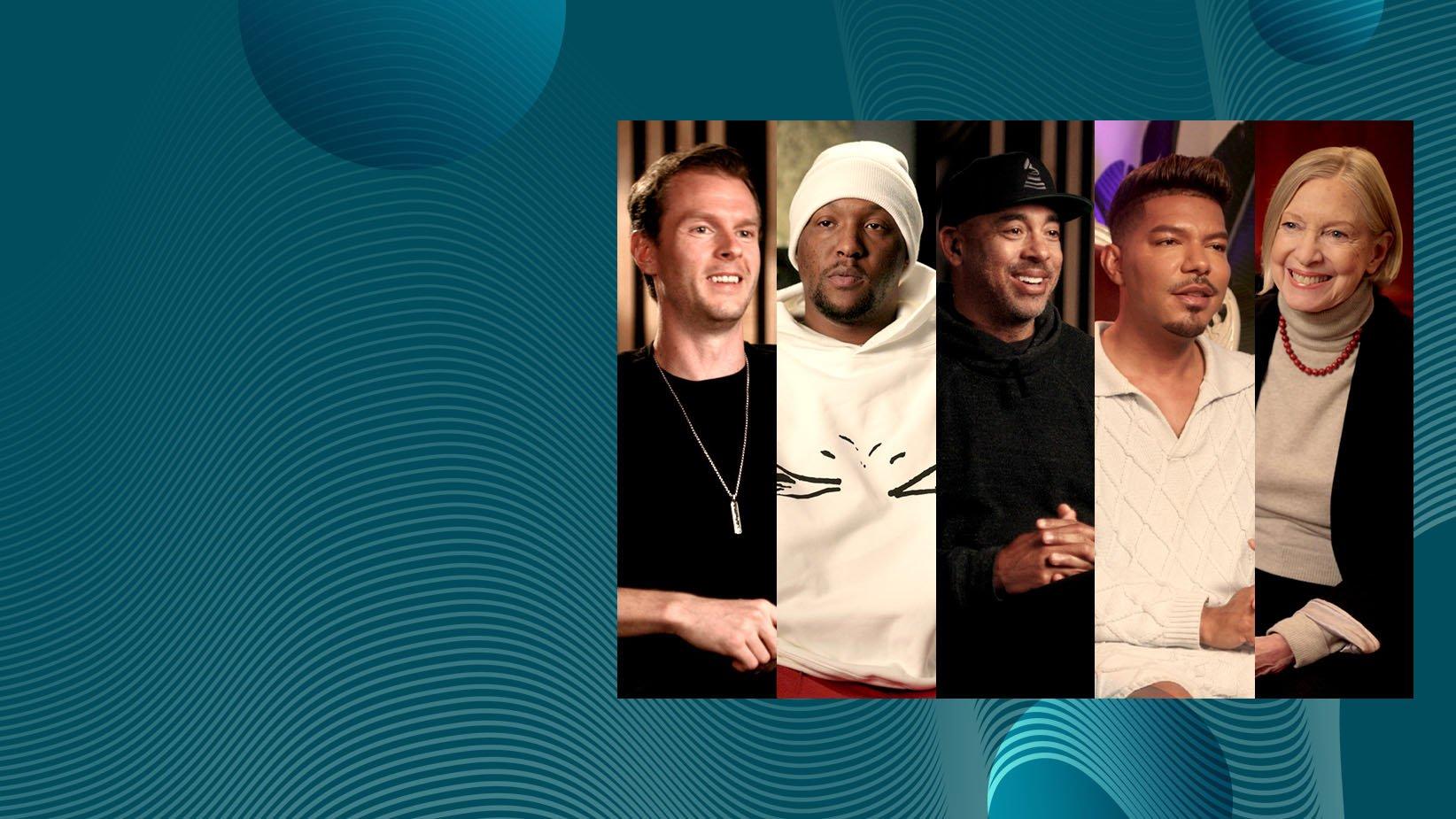
Photos Courtesy of the Recording Academy
news
The New GRAMMY GO Music Production Course Is Now Open: Featuring GRAMMY Winners Hit-Boy, CIRKUT, Judith Sherman & More
Enrollment is now open for GRAMMY GO's new specialization, "Music Production: Crafting Award-Worthy Songs," featuring appearances by GRAMMY winners and nominees. Learn music production and creative strategies from today's industry leaders.
Editor’s Note: Updated to add the Instagram Live video featuring Harvey Mason jr. and Stevie Mackey.
The Recording Academy continues its mission to empower music's next generation with the launch of its second specialization in the GRAMMY GO platform: "Music Production: Crafting Award-Worthy Songs."
This new course, a partnership between the Recording Academy and leading online learning platform Coursera, aims to bolster the technological and audio skills of music producers of all levels. The course, taught by Howard University professor and GRAMMY nominee Carolyn Malachi, features appearances by three-time GRAMMY winner and rap icon Hit-Boy, chart-topping and GRAMMY-winning producer/songwriter CIRKUT, artist and celebrity vocal coach Stevie Mackey, five-time GRAMMY nominee and Recording Academy CEO Harvey Mason jr., and 15-time GRAMMY winner Judith Sherman.
Enrollment for "Music Production: Crafting Award-Worthy Songs" is open now.
Mixing a unique blend of theory and practice, the course teaches music creators of all levels the advanced skills and tools to develop the mindset and confidence of an experienced producer and produce songs of the highest industry standards across all genres. Explore the wide-ranging roles of a music producer, develop critical listening and analysis skills, and master the technical aspects to create music and compositions that cut through the noise. The course's applied learning approach allows learners to sharpen their pre-production skills, utilize Digital Audio Workstations (DAWs) effectively, and produce vocals, instrumentals and samples collaboratively. Through critical listening exercises and discussions, learners will refine their abilities to deliver professional-quality demos.
To celebrate the launch, the Recording Academy hosted an Instagram Live session on Tuesday in which guests Harvey Mason jr. and Stevie Mackey discussed the evolving role of music producers, strategies for working with artists, key elements of top-notch productions, common mixing mistakes, tips for keeping the creative process fresh, and enrollment details for the course.
Building on the success of its first specialization, "Building Your Audience for Music Professionals," GRAMMY GO continues to offer industry-focused education tailored for emerging and established music creators and professionals alike. The innovative platform provides learners with real-time insights from leading music industry figures, ensuring the content remains practical and up to date. GRAMMY GO will also serve as an essential tool in the Recording Academy's global expansion into Africa and the Middle East, empowering music creators through enhanced training, bridging knowledge gaps, and fostering connections within the global music community.
Launched in April in partnership with Coursera, GRAMMY GO is the Recording Academy's first creator-to-creator platform, offering innovative courses tailored for both emerging and established music professionals. The initiative accelerates the Academy's global mission and reinforces its commitment to music education, providing a seamless bridge between all Academy initiatives.
Learn more about GRAMMY GO and the "Music Production: Crafting Award-Worthy Songs" and "Building Your Audience for Music Professionals" specializations.
Watch the Instagram Live session with Harvey Mason jr. and Stevie Mackey in full below:
More Music Education News & Initiatives
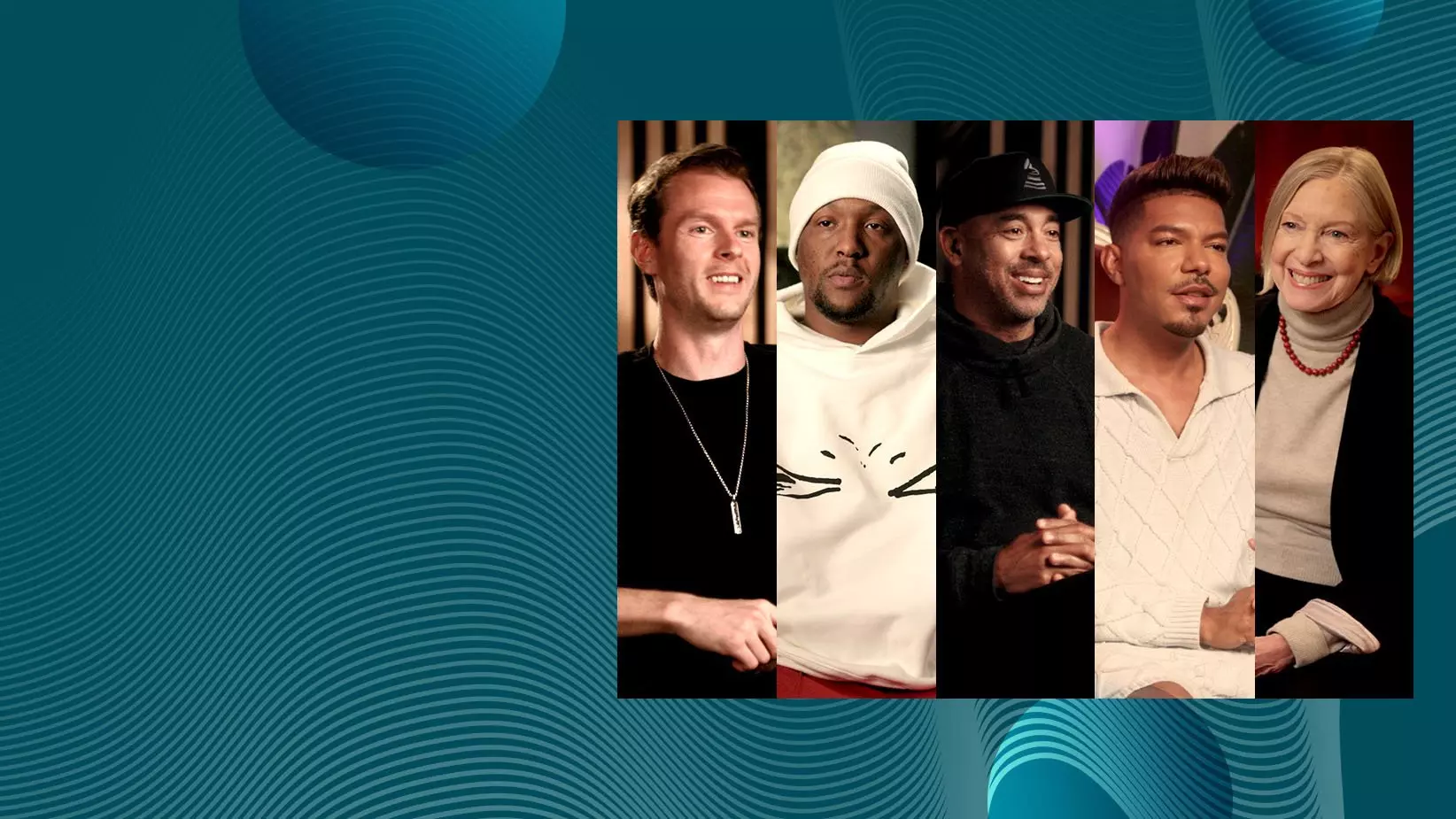
The New GRAMMY GO Music Production Course Is Now Open: Featuring GRAMMY Winners Hit-Boy, CIRKUT, Judith Sherman & More
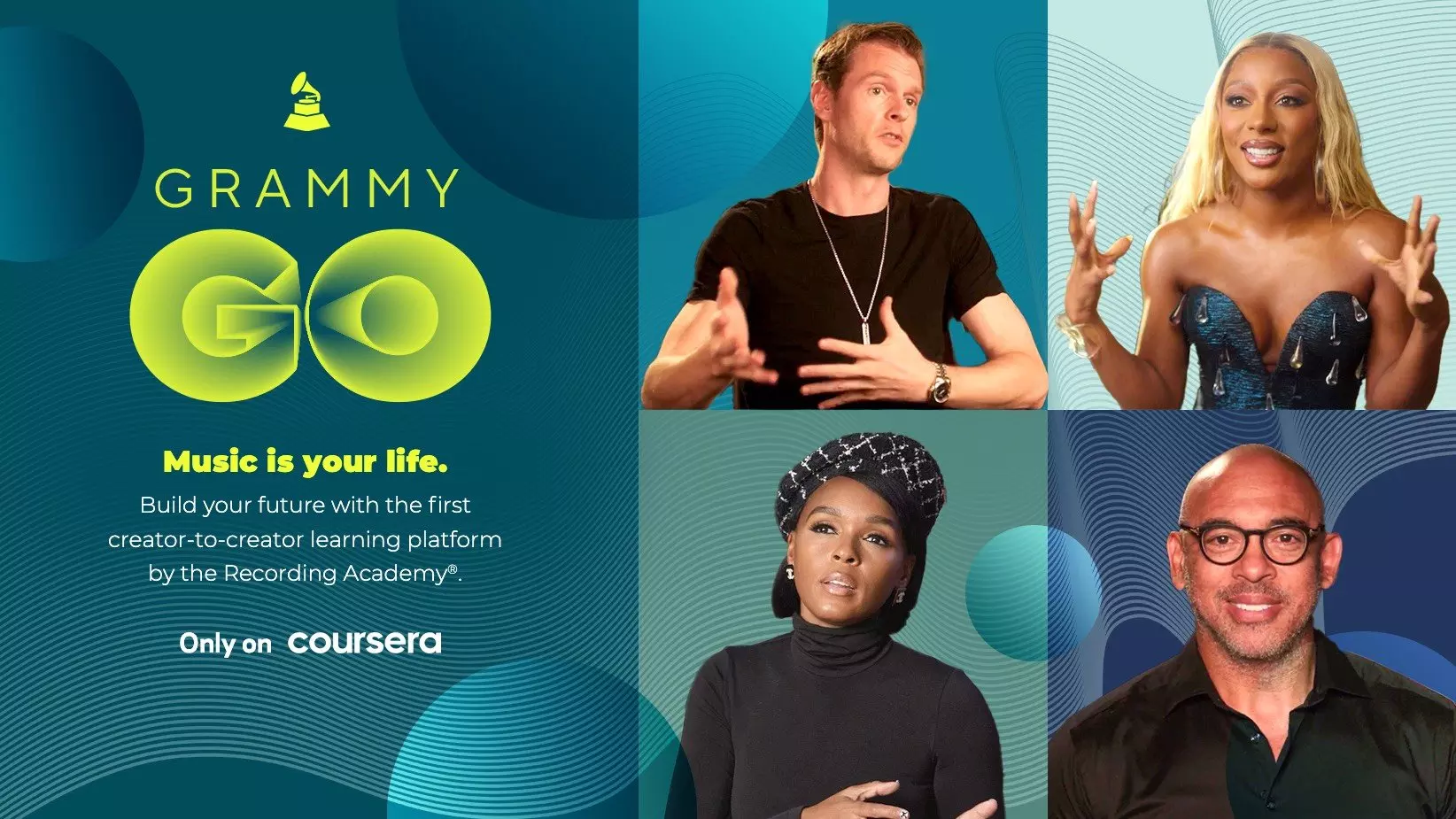
Recording Academy & Coursera Partner To Launch GRAMMY GO Online Learning Initiative
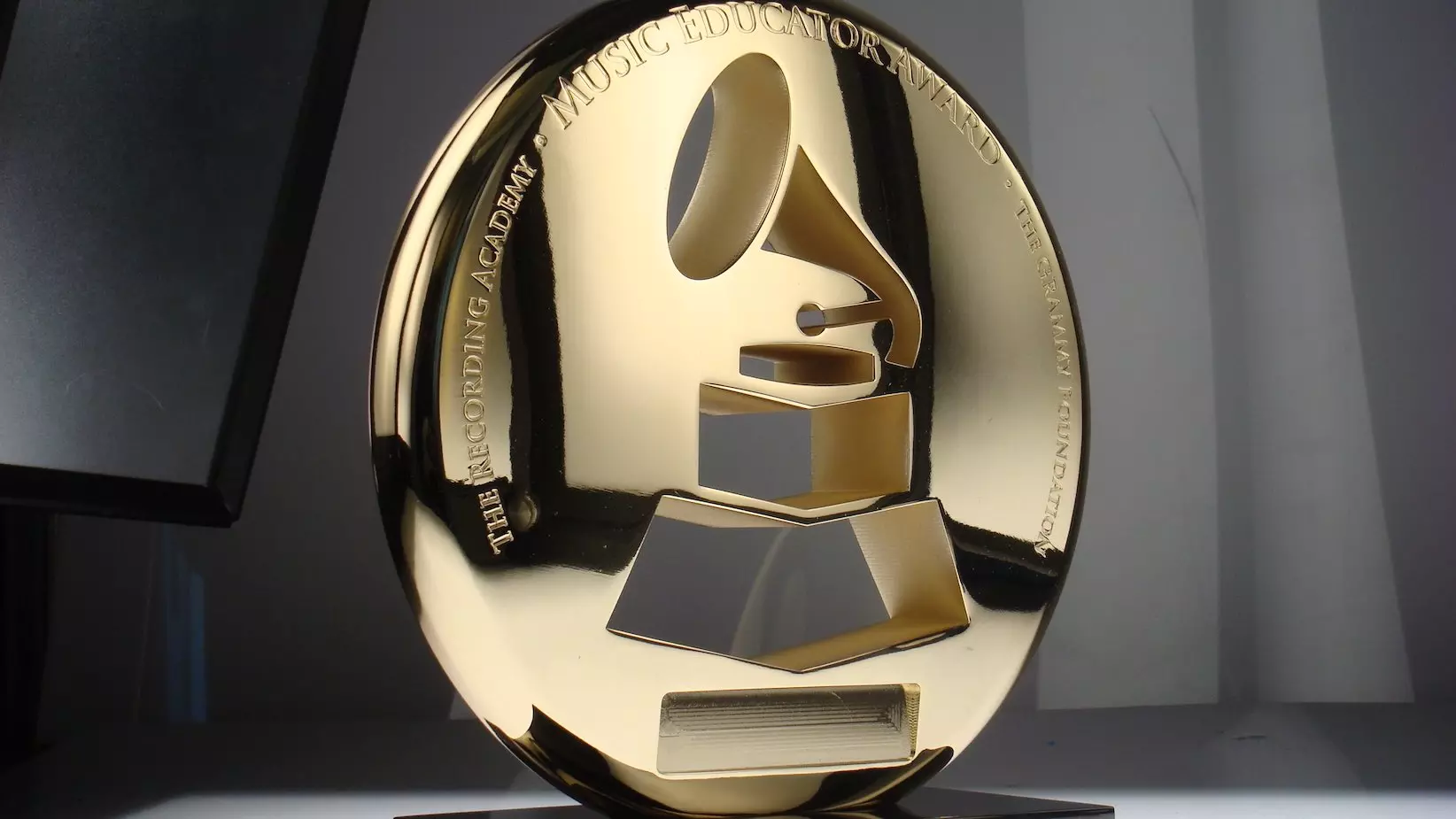
25 Semifinalists Announced For The 2024 Music Educator Award

5 Music Teachers Share The Transformative Power Of Music Education
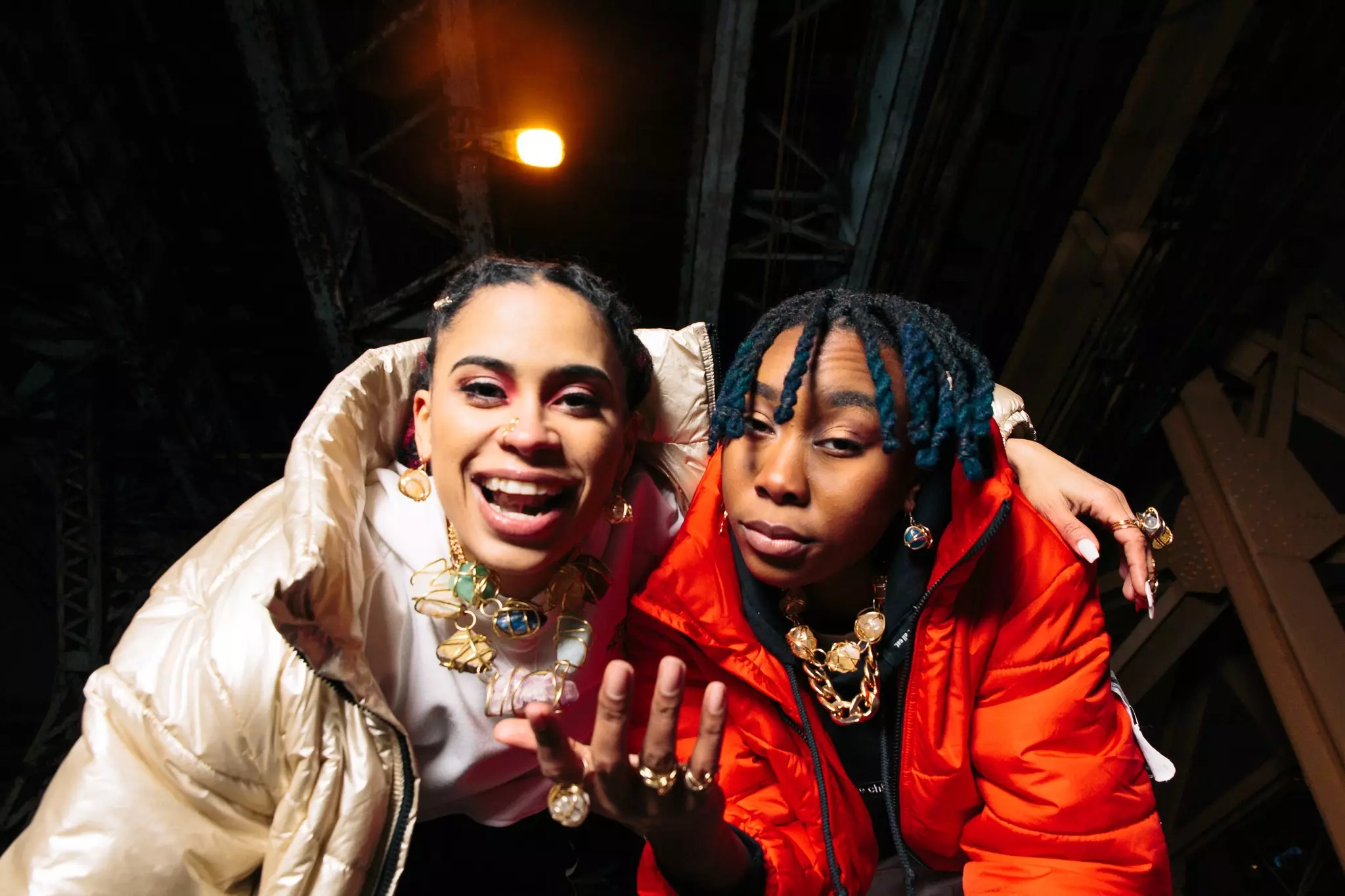
Meet Mother Nature, The Chicago Rap Duo That Teach & Live Self-Expression Through Their Miseducation Of HipHop Youth Workshops

Photo: Jathan Campbell
list
How Much Is A GRAMMY Worth? 7 Facts To Know About The GRAMMY Award Trophy
Here are seven facts to know about the actual cost and worth of a GRAMMY trophy, presented once a year by the Recording Academy at the GRAMMY Awards.
Since 1959, the GRAMMY Award has been music’s most coveted honor. Each year at the annual GRAMMY Awards, GRAMMY-winning and -nominated artists are recognized for their musical excellence by their peers. Their lives are forever changed — so are their career trajectories. And when you have questions about the GRAMMYs, we have answers.
Here are seven facts to know about the value of the GRAMMY trophy.
How Much Does A GRAMMY Trophy Cost To Make?
The cost to produce a GRAMMY Award trophy, including labor and materials, is nearly $800. Bob Graves, who cast the original GRAMMY mold inside his garage in 1958, passed on his legacy to John Billings, his neighbor, in 1983. Billings, also known as "The GRAMMY Man," designed the current model in use, which debuted in 1991.
How Long Does It Take To Make A GRAMMY Trophy?
Billings and his crew work on making GRAMMY trophies throughout the year. Each GRAMMY is handmade, and each GRAMMY Award trophy takes 15 hours to produce.
Where Are The GRAMMY Trophies Made?
While Los Angeles is the headquarters of the Recording Academy and the GRAMMYs, and regularly the home of the annual GRAMMY Awards, GRAMMY trophies are produced at Billings Artworks in Ridgway, Colorado, about 800 miles away from L.A.
Is The GRAMMY Award Made Of Real Gold?
GRAMMY Awards are made of a trademarked alloy called "Grammium" — a secret zinc alloy — and are plated with 24-karat gold.
How Many GRAMMY Trophies Are Made Per Year?
Approximately 600-800 GRAMMY Award trophies are produced per year. This includes both GRAMMY Awards and Latin GRAMMY Awards for the two Academies; the number of GRAMMYs manufactured each year always depends on the number of winners and Categories we award across both award shows.
Fun fact: The two GRAMMY trophies have different-colored bases. The GRAMMY Award has a black base, while the Latin GRAMMY Award has a burgundy base.
Photos: Gabriel Bouys/AFP via Getty Images; Frederick M. Brown/Getty Images
How Much Does A GRAMMY Weigh?
The GRAMMY trophy weighs approximately 5 pounds. The trophy's height is 9-and-a-half inches. The trophy's width is nearly 6 inches by 6 inches.
What Is The True Value Of A GRAMMY?
Winning a GRAMMY, and even just being nominated for a GRAMMY, has an immeasurable positive impact on the nominated and winning artists. It opens up new career avenues, builds global awareness of artists, and ultimately solidifies a creator’s place in history. Since the GRAMMY Award is the only peer-voted award in music, this means artists are recognized, awarded and celebrated by those in their fields and industries, ultimately making the value of a GRAMMY truly priceless and immeasurable.
In an interview featured in the 2024 GRAMMYs program book, two-time GRAMMY winner Lauren Daigle spoke of the value and impact of a GRAMMY Award. "Time has passed since I got my [first] GRAMMYs, but the rooms that I am now able to sit in, with some of the most incredible writers, producers and performers on the planet, is truly the greatest gift of all."
"Once you have that credential, it's a different certification. It definitely holds weight," two-time GRAMMY winner Tariq "Black Thought" Trotter of the Roots added. "It's a huge stamp as far as branding, businesswise, achievement-wise and in every regard. What the GRAMMY means to people, fans and artists is ever-evolving."
As Billboard explains, artists will often see significant boosts in album sales and streaming numbers after winning a GRAMMY or performing on the GRAMMY stage. This is known as the "GRAMMY Effect," an industry phenomenon in which a GRAMMY accolade directly influences the music biz and the wider popular culture.
For new artists in particular, the "GRAMMY Effect" has immensely helped rising creators reach new professional heights. Samara Joy, who won the GRAMMY for Best New Artist at the 2023 GRAMMYs, saw a 989% boost in sales and a 670% increase in on-demand streams for her album Linger Awhile, which won the GRAMMY for Best Jazz Vocal Album that same night. H.E.R., a former Best New Artist nominee, saw a massive 6,771% increase in song sales for her hit “I Can’t Breathe” on the day it won the GRAMMY for Song Of The Year at the 2021 GRAMMYs, compared to the day before, Rolling Stone reports.
Throughout the decades, past Best New Artist winners have continued to dominate the music industry and charts since taking home the GRAMMY gold — and continue to do so to this day. Recently, Best New Artist winners dominated the music industry and charts in 2023: Billie Eilish (2020 winner) sold 2 million equivalent album units, Olivia Rodrigo (2022 winner) sold 2.1 million equivalent album units, and Adele (2009 winner) sold 1.3 million equivalent album units. Elsewhere, past Best New Artist winners have gone on to star in major Hollywood blockbusters (Dua Lipa); headline arena tours and sign major brand deals (Megan Thee Stallion); become LGBTIA+ icons (Sam Smith); and reach multiplatinum status (John Legend).
Most recently, several winners, nominees and performers at the 2024 GRAMMYs saw significant bumps in U.S. streams and sales: Tracy Chapman's classic, GRAMMY-winning single "Fast Car," which she performed alongside Luke Combs, returned to the Billboard Hot 100 chart for the first time since 1988, when the song was originally released, according to Billboard. Fellow icon Joni Mitchell saw her ‘60s classic “Both Sides, Now,” hit the top 10 on the Digital Song Sales chart, Billboard reports.
In addition to financial gains, artists also experience significant professional wins as a result of their GRAMMY accolades. For instance, after she won the GRAMMY for Best Reggae Album for Rapture at the 2020 GRAMMYs, Koffee signed a U.S. record deal; after his first GRAMMYs in 2014, Kendrick Lamar saw a 349% increase in his Instagram following, Billboard reports.
Visit our interactive GRAMMY Awards Journey page to learn more about the GRAMMY Awards and the voting process behind the annual ceremony.
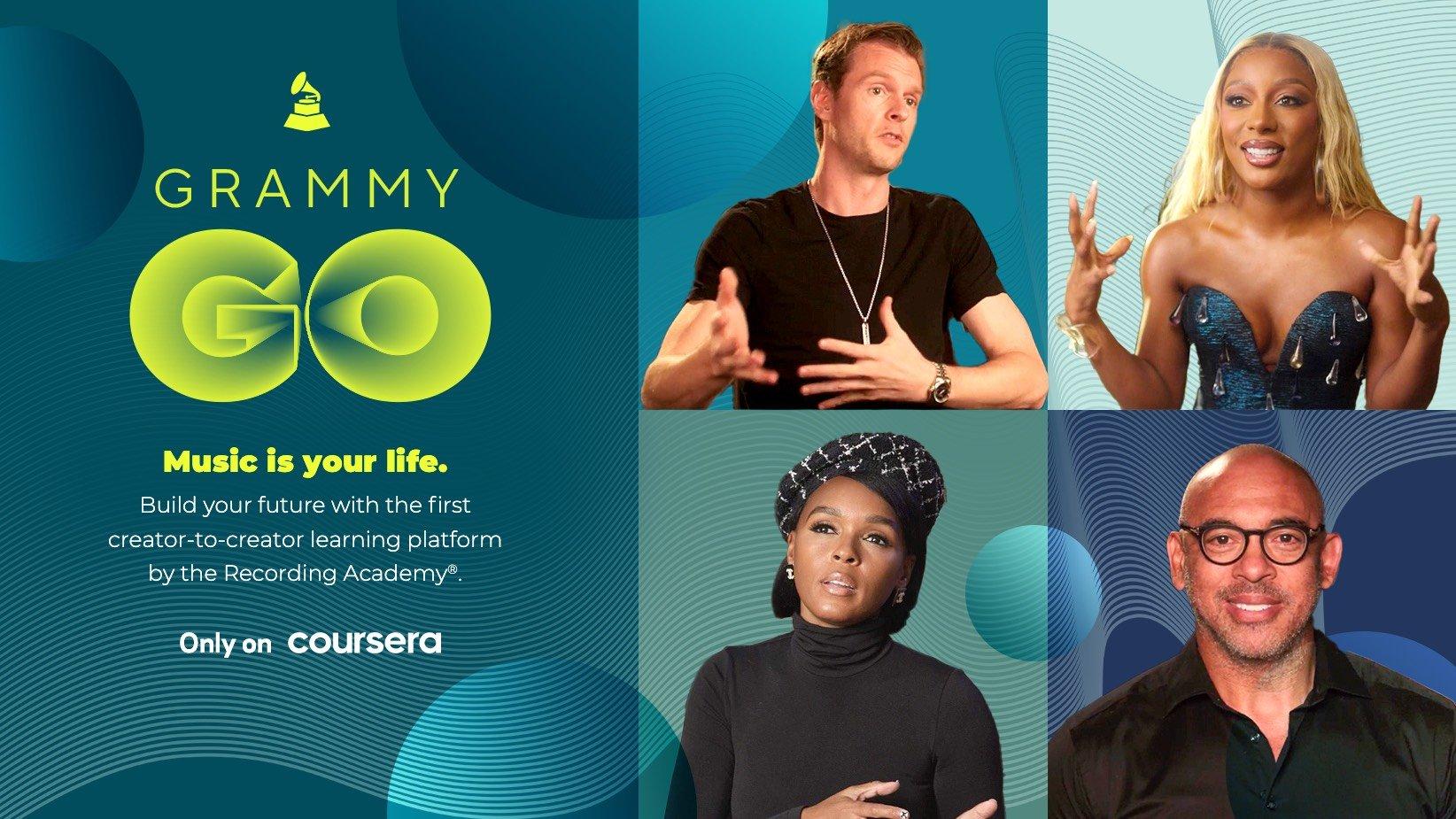
Graphic & Photos Courtesy of GRAMMY GO
news
Recording Academy & Coursera Partner To Launch GRAMMY GO Online Learning Initiative
Class is in session. As part of the Recording Academy's ongoing mission to empower music's next generation, GRAMMY Go offers digital content in specializations geared to help music industry professionals grow at every stage of their career.
The Recording Academy has partnered with leading online learning platform Coursera on GRAMMY GO, a new online initiative to offer classes tailored for music creators and industry professionals.
This partnership empowers the next generation of the music community with practical, up-to-the moment digital content that provides wisdom for both emerging and established members of the industry. Continuing the Academy’s ongoing mission to serve all music people, courses cover a variety of specializations tailored to creative and professional growth.
GRAMMY GO on Coursera includes courses taught by Recording Academy members, featuring GRAMMY winners and nominees and offers real-life lessons learners can put to work right away.
Starting today, enrollment is open for GRAMMY GO’s first Coursera specialization, "Building Your Audience for Music Professionals," taught by Joey Harris, international music/marketing executive and CEO of Joey Harris Inc. The course features Rock & Roll Hall of Fame inductee and five-time GRAMMY winner Jimmy Jam, 10-time GRAMMY nominee Janelle Monáe and three-time GRAMMY winner and the 2024 GRAMMYs Best New Artist Victoria Monét. This foundational specialization will help participants gain the skills, knowledge and confidence to build a strong brand presence and cultivate a devoted audience within the ever-changing music industry.
The partnership’s second course, launching later this summer, aims to strengthen the technological and audio skills of a music producer. "Music Production: Crafting An Award-Worthy Song" will be taught by Carolyn Malachi, Howard University professor and GRAMMY nominee, and will include appearances by GRAMMY winner CIRKUT, three-time GRAMMY winner Hit-Boy, artist and celebrity vocal coach Stevie Mackey, five-time GRAMMY nominee and Recording Academy CEO Harvey Mason jr., and 15-time GRAMMY winner Judith Sherman. Pre-enrollment for "Music Production: Crafting An Award-Worthy Song" opens today.
"Whether it be through a GRAMMY Museum program, GRAMMY Camp or GRAMMY U, the GRAMMY organization is committed to helping music creators flourish, and the Recording Academy is proud to introduce our newest learning platform, GRAMMY GO, in partnership with Coursera," said Panos A. Panay, President of the Recording Academy. "A creator’s growth path is ongoing and these courses have been crafted to provide learners with the essential tools to grow in their professional and creative journeys."
"We are honored to welcome GRAMMY GO, our first entertainment partner, to the Coursera community," said Marni Baker Stein, Chief Content Officer at Coursera. "With these self-paced online specializations, aspiring music professionals all over the world have an incredible opportunity to learn directly from iconic artists and industry experts. Together with GRAMMY GO, we can empower tomorrow's pioneers of the music industry to explore their passion today."
GRAMMY GO also serves as the music community’s newest digital hub for career pathways and editorial content that provides industry insights for members of the industry; visit go.grammy.com for more. For information and enrollment, please visit the landing pages for "Building Your Audience for Music Professionals" and "Music Production: Crafting An Award-Worthy Song."
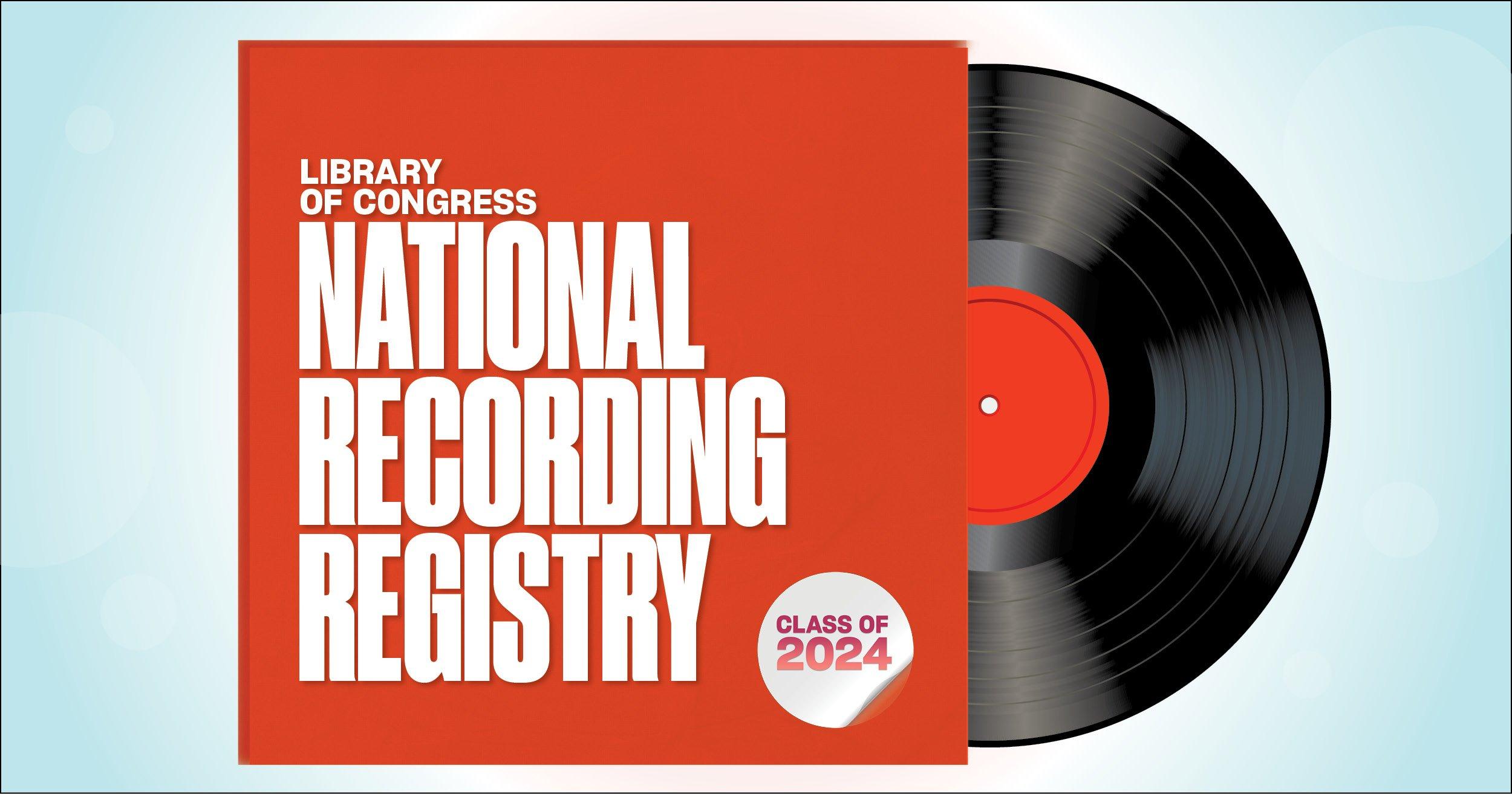
Photo: Library of Congress
news
National Recording Registry Inducts Music From The Notorious B.I.G., Green Day, Blondie, The Chicks, & More
Recordings by the Cars, Bill Withers, Lily Tomlin, Doug E. Fresh and Slick Rick, and the all-Black 369th U.S. Infantry Band after World War I are also among the 25 selected for induction.
As a founding member of the National Recording Preservation Board, the Recording Academy was instrumental in lobbying and getting the board created by Congress. Now, the Library of Congress has added new treasures to the National Recording Registry, preserving masterpieces that have shaped American culture.
The 2024 class not only celebrates modern icons like Green Day’s punk classic Dookie and Biggie Smalls' seminal Ready to Die, but also honors vintage gems like Gene Autry’s "Rudolph, the Red-Nosed Reindeer" and Perry Como’s hits from 1957. These recordings join over 650 titles that constitute the registry — a curated collection housed within the Library’s vast archive of nearly 4 million sound recordings.
Librarian of Congress Carla Hayden announced these additions as essential pieces of our nation’s audio legacy, each selected for their cultural, historical, or aesthetic importance. This selection process is influenced by public nominations, which hit a record number this year, emphasizing the public's role in preserving audio history.
Read more: Inside Green Day's Intimate "Right Here, Right Now" Global Climate Concert In San Francisco
"The Library of Congress is proud to preserve the sounds of American history and our diverse culture through the National Recording Registry," Hayden said. "We have selected audio treasures worthy of preservation with our partners this year, including a wide range of music from the past 100 years, as well as comedy. We were thrilled to receive a record number of public nominations, and we welcome the public’s input on what we should preserve next."
The latest selections named to the registry span from 1919 to 1998 and range from the recordings of the all-Black 369th U.S. Infantry Band led by James Reese Europe after World War I, to defining sounds of jazz and bluegrass, and iconic recordings from pop, dance, country, rock, rap, Latin and classical music.
"For the past 21 years the National Recording Preservation Board has provided musical expertise, historical perspective and deep knowledge of recorded sound to assist the Librarian in choosing landmark recordings to be inducted into the Library’s National Recording Registry," said Robbin Ahrold, Chair of the National Recording Preservation Board. "The board again this year is pleased to join the Librarian in highlighting influential works in our diverse sound heritage, as well as helping to spread the word on the National Recording Registry through their own social media and streaming media Campaigns."
Tune in to NPR's "1A" for "The Sounds of America" series, featuring interviews with Hayden and selected artists, to hear stories behind this year’s picks. Stay connected to the conversation about the registry via social media and listen to many of the recordings on your favorite streaming service.
For more details on the National Recording Registry and to explore more about the selections, visit The Library of Congress's official National Recording Registry page.
National Recording Registry, 2024 Selections (chronological order)
"Clarinet Marmalade" – Lt. James Reese Europe’s 369th U.S. Infantry Band (1919)
"Kauhavan Polkka" – Viola Turpeinen and John Rosendahl (1928)
Wisconsin Folksong Collection (1937-1946)
"Rose Room" – Benny Goodman Sextet with Charlie Christian (1939)
"Rudolph, the Red-Nosed Reindeer" – Gene Autry (1949)
"Tennessee Waltz" – Patti Page (1950)
"Rocket ‘88’" – Jackie Brenston and His Delta Cats (1951)
"Catch a Falling Star" / "Magic Moments" – Perry Como (1957)
"Chances Are" – Johnny Mathis (1957)
"The Sidewinder" – Lee Morgan (1964)
"Surrealistic Pillow" – Jefferson Airplane (1967)
"Ain’t No Sunshine" – Bill Withers (1971)
"This is a Recording" – Lily Tomlin (1971)
"J.D. Crowe & the New South" – J.D. Crowe & the New South (1975)
"Arrival" – ABBA (1976)
"El Cantante" – Héctor Lavoe (1978)
"The Cars" – The Cars (1978)
"Parallel Lines" – Blondie (1978)
"La-Di-Da-Di" – Doug E. Fresh and Slick Rick (MC Ricky D) (1985)
"Don’t Worry, Be Happy" – Bobby McFerrin (1988)
"Amor Eterno" – Juan Gabriel (1990)
"Pieces of Africa" – Kronos Quartet (1992)
Dookie – Green Day (1994)
Ready to Die – The Notorious B.I.G. (1994)
"Wide Open Spaces" – The Chicks (1998)
21 Albums Turning 50 In 2024: 'Diamond Dogs,' 'Jolene,' 'Natty Dread' & More
